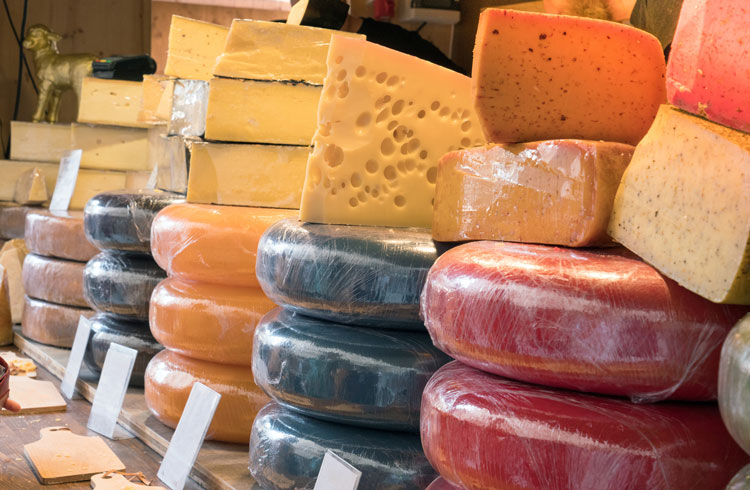
The European Union’s (EU) use of geographical indications (GIs) to monopolize the cheese market is founded on the belief that European cheeses are of a higher quality than those made elsewhere, including the U.S. However, the argument continues to degrade and simply isn’t true based on cheese competitions.
Sartori Cheese, for example, proved that in 2013. For the first time, their extra-aged Parmesan was able to compete against Parmigiano-Reggiano, the Italians’ “authentic” Parmesan, in the world’s longest-running major cheese award contest. Jeff Schwager, CEO of Sartori, explained the significance of that competition on the October 7 Hoard’s Dairyman DairyLivestream.
“The judges, who are world-renowned judges, ended up giving [ours] first place,” he said. “We beat Reggiano. Reggiano had won the Parmesan category for over 100 years before that.”
That didn’t go over too well with the people who consider their Parmesan to be the gold standard. “The Italians weren’t happy,” Schwager continued. “They sued us, and they sued the contest organizers. You can’t go online and verify that anymore because the result was taken down. We still have the award in our office to prove it.”
This was just one example of why consumers should have access to multiple products. Schwager added, “It’s not just Sartori; there are a lot of U.S. cheesemakers that make incredible cheese. There’s worldwide demand for it.”
Consumers are the judge
Of course, the real competition is fought on grocery store shelves as consumers make their purchases. But it’s hardly a level playing field when two comparable products cannot be called the same thing.
“The number one criteria that the consumer has is variety of cheese,” Schwager identified. A shopper doesn’t write cheese flavors and textures on their grocery list — they write Asiago, Parmesan, or Feta. “If those names are not available to us, they’re not going to buy U.S. cheese,” he said.
Additionally, different customers have different needs. Some make food purchases based on the experience, while others are looking for a more economical, nutritious alternative with the same properties. Without accurately labeled products, shoppers may not find what they’re looking for.
“In the end, we want the consumer to make the decision,” Schwager stated.
It should be a fair decision, too. “We have proven by the amount of international awards that we are winning over the Europeans; that we’re producing the best cheeses in the world,” added Jaime Castaneda of the National Milk Producers Federation. “Europe simply doesn’t want to compete with them.”
An ongoing series of events
DairyLivestream will air twice each month for the remainder of this year. The next broadcast, “Dairy remains a powerhouse,” will be on Wednesday, October 21 at 11 a.m. CST. Each episode is designed for panelists to answer over 30 minutes of audience questions. If you haven’t joined a DairyLivestream broadcast yet, register here. Registering once registers you for all future events.








